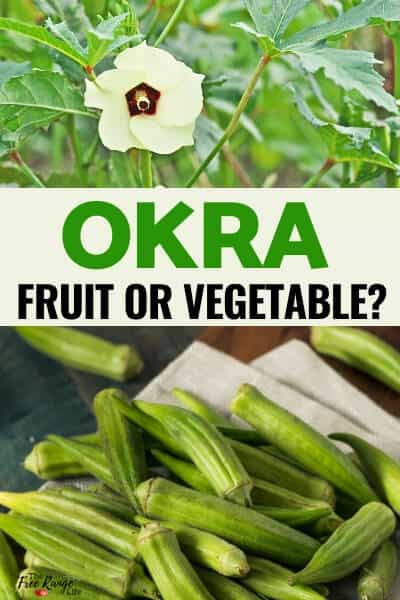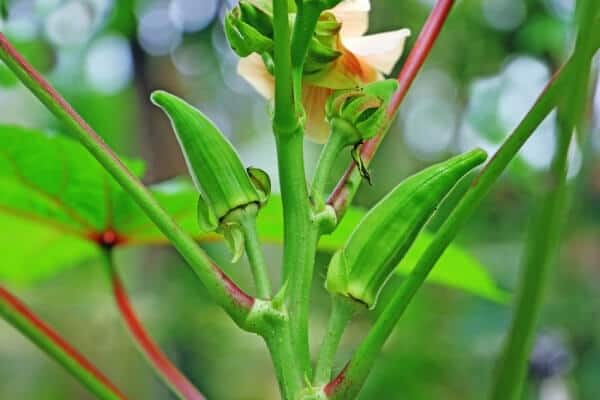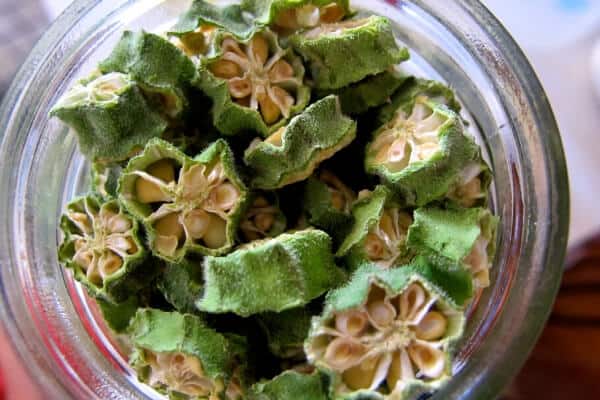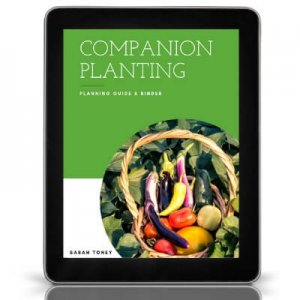Okra is growing in popularity around the world both in gardens and it meals. But have you ever stopped to wonder: is okra a vegetable or is okra a fruit?
First, what is okra?
This site contains affiliate links. If you make a purchase using one of these links, I may earn a commission. Please see my disclosure page for more information about cookies collected and our privacy policy.
Okra is a green, finger-shaped pod filled with edible seeds (sometimes nicknamed “ladies fingers’!)
It is a warm weather, flowering plant that grows in the United States, South America, and parts of Africa, to name a few.
It’s a popular addition to gumbo, soups, and, here in the south, is a favorite fried side dish!
The okra pod is the fruit of the Abelmoschus esculentus plant which is a member of the Mallow family.
Okra pods have a characteristic slimy-ness to them when they are cut open and cooked. This makes it great for thickening sauces and soups.
Plan your best garden ever with my Yearly Garden Planner. It has planning pages, records sheets and more to help you start seeds, keep track of pests and disease, and keep track of everything garden related.
Is a Okra a Fruit or a Vegetable?
Well, the answer to that depends based on who you are asking and what their criteria is for deciding.
So first let’s look at the technical definition of a fruit and vegetable, according to Merriam Webster:
Fruit: The usually edible reproductive body of a seed plant or the ripened ovary of a seed plant and its contents (source)
Vegetable: A usually herbaceous plant grown for an edible part that is usually eaten as part of a meal (source)
Okay, so by that definition, things may not be much clearer. It’s basically saying that “fruits” can also be called vegetables!
But now that we all know the official definitions of fruits and vegetables, let’s take a look at what this means for okra in more specific terms.
According to Science: Okra is a Fruit
As seen above, scientifically speaking, a fruit is the part of a plant that develops from the flower and contains the seeds of the plant.
According to botanical definitions, the fruit of a plant is what allows the plant to reproduce. It develops from the ovary of the flower and contains the seeds the plant needs to reproduce into future generations.
By this definition, okra is a fruit. The okra pod develops from the flower of the okra plant and it contains the seeds which, if saved or scattered, would result in more okra plants growing.
This also means that lots of other “vegetables” are also technically fruits: green beans, bell peppers, pumpkins, cucumbers, and of course, tomatoes.
All other parts of the plant- roots, leaves, stalks, etc- would be vegetables.
So botanically speaking- okra is the fruit of the plant. But bring it inside to the kitchen, and you may get a different answer!
According to Cooks: Okra is a vegetable
In the kitchen and in the culinary world the okra is described as a vegetable. Their less scientific criteria classifies fruits and vegetables based on sweetness and sugar content.
Fruits have a more delicate flavor. They have a softer texture and are sweet or tart in taste. Fruits are more likely to be featured in desserts, jams, smoothies, or other sweeter dishes. And I don’t know about you, but whether or not you can make a pie from it, can be a big deciding factor as well!
Vegetables are harder, with a somewhat bitter taste. They are used in savory dishes and soups.
So in the kitchen, okra is a vegetable as it is low in sugar and usually used in more savory dishes. Like my southern favorite- fried okra!
Does It Really Matter?
NO! Okra is delicious and has a lot of nutritional value- so no matter if you think okra is a fruit or a vegetable keep on eating it and keep on growing it!
Regardless of whether you call it a fruit or a vegetable, okra has a lot of benefits. Okra is rich in fiber, vitamin C, vitamin K, folate, and thiamine.
It is also low in calories, has next to no fat, and is a good source of antioxidants.
Learn More About Okra:
Check out these articles below to learn more about okra, growing okra, how to store okra, and more!
The Best Okra Companion Plants
How to Preserve Okra by Dehydrating






